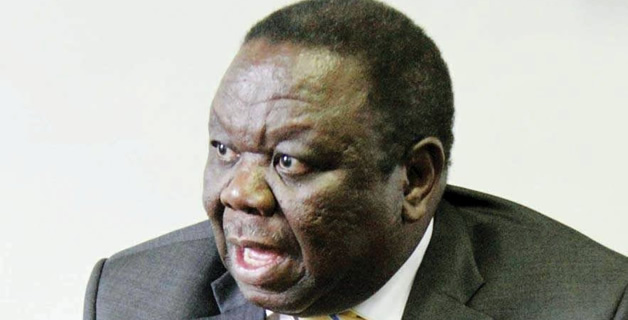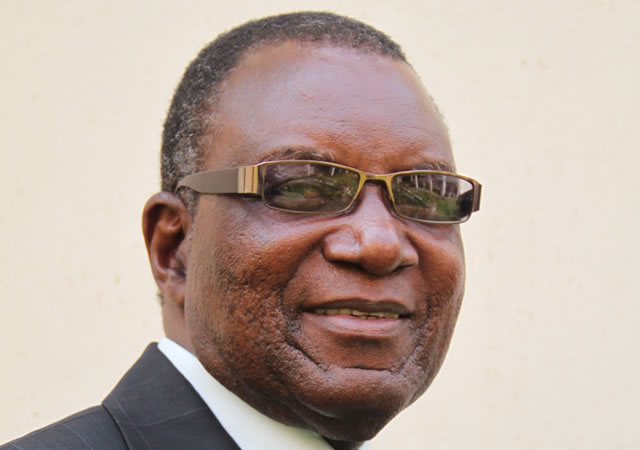MDC-T not democratic

Clemence Manyukwe
MDC-T leader Mr Morgan Tsvangirai has raised dust by his appointment of Mr Nelson Chamisa and Engineer Elias Mudzuri as the party’s vice presidents.
The two, who are all members of the national assembly, join Ms Thokozane Khupe who was elected to the top post at the party’s congress in 2014.
At that congress, Mr Chamisa did bite the dust, losing the secretary-general’s position to Mr Douglas Mwonzora.
In a shock defeat, Mr Chamisa polled 1,756 against Mr Mwonzora’s 2,464 amid allegations of vote rigging that have not been proved.
Mr Chamisa is 38-years-old, he is a practising lawyer and comes from Gutu in Masvingo province. Eng Mudzuri is 59-years-old and was trained in Sierra Leone as a civil engineer.
At one time he was a fellow at Harvard University’s John F Kennedy School of Government. He also holds a Masters in Public Administration from the same United States University.
Like Mr Chamisa, Mr Mudzuri also comes from Masvingo province in Zaka.
Analysts say Mr Tsvangirai’s appointments are meant to address the succession question that has arisen due to his disclosure of his sickness, cancer of the colon.
Political analyst Mr Ricky Mukonza foresees discontent over the latest move.
“Firstly, it’s going to cause discontent among elected officials in the MDC-T. A case in point is that of Mwonzora who defeated Chamisa in the election being appointed one of the VPs.
How will that make Mwonzora and his supporters and sympathisers feel?
Secondly, the two VPs are from the same tribal background, that is, Karanga.
Whether we acknowledge it or not, tribal politics are a reality not only for MDC-T but African politics in general.
It was therefore important for MT to consider that in his appointments,” said Mr Mukonza. There is also a view that the appointments were a way by Mr Tsvangirai to deal with internal party power dynamics.
In this regard, Ms Khupe and her faction were seen as becoming too powerful and the appointed two VPs are meant to neutralise her.
“There is no clarity on what will become of Madam Khupe, the appointments create a perception that MT has no confidence in a woman VP, hence she needs assistance.
Lastly, appointments by their very nature show preference of the appointing authority and not necessarily the majority in the party.”
Legal expert Mr Alex Magaisa said the MDC-T gave Mr Tsvangirai powers to make appointments during the 2014 congress, but the decision has its own challenges.
He said the broad powers that Mr Tsvangirai was given are at odds with the principle of a democratically elected leadership.
“It is a crude attempt by the MDC-T to import some of the flexibility of the appointing system into an electoral system.
Sympathisers point to the appointment of Amos Chibaya to replace the late Thamsanga Mahlangu last year as an example of the application of this power.
Yet of course in that case it was perfectly understandable because a vacancy had arisen after the death of the incumbent.
It had to be filled but this case is different because new vacancies are being created. Where does it stop? How many more vacancies can the president create?” asked Mr Magaisa.
“Even if it is constitutional, the issue is bigger than legality. As we always say the spirit of constitutionalism is more fundamental than constitutionality.
Having powers to appoint in an election model produces very awkward results.
In fact it presents a serious moral hazard which is that the president can use it to appoint his or her own people to rival elected ones in the event that his or her own preferred candidates lose at election. It is prone to abuse.”
Mr Clever Bere says Mr Tsvangirai’s move was undemocratic and points to doom if he is handed power over the country’s affairs.
He said it would be tough for Eng Mudzuri and Mr Chamisa to champion democracy at the same time being beneficiaries of an undemocratic tendency.
“Although there is no straining of the fiscus from these appointments, what this shows us is that with regards to government structure under a future MDC government, we may have to live with that.
You would expect membership to elect leadership at congress as they did in 2014, now in the middle of the term of office of an executive elected with a five year mandate, the leader unilaterally appoints VPs. That’s not democratic selection of leadership,” he said.









Comments